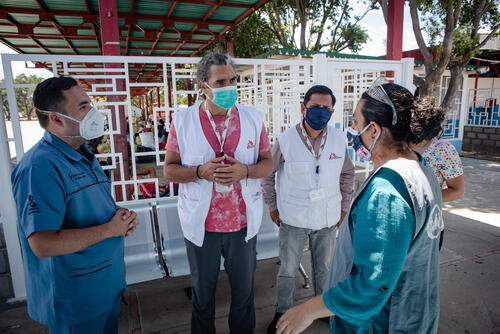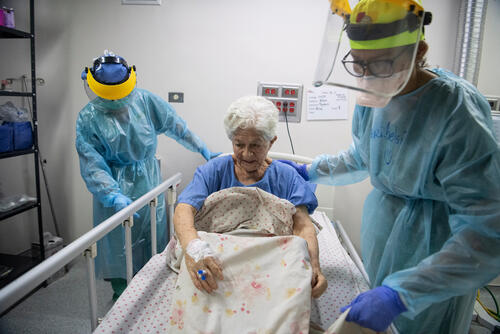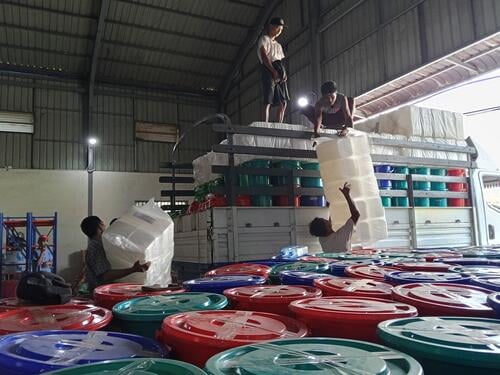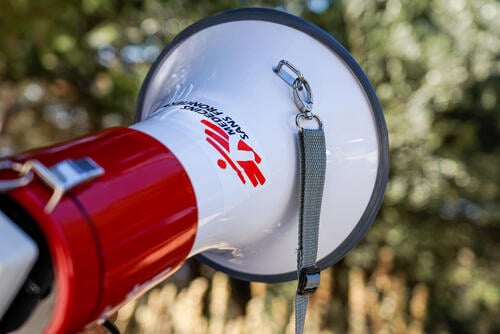Oswaldo Martinez is a 31-year-old Venezuelan who emigrated to Colombia when the economic situation in his own country left him struggling to support his wife and two children. With a heavy heart, he left his job selling onions and travelled to Peru, leaving his family in Venezuela. He had no luck finding a job in Peru, so made his way to Ecuador. After six fruitless months searching for work, and with COVID-19 spreading through Latin America, he decided to return home.
It was a long journey back to Venezuela. Oswaldo walked for weeks, relying for food, shelter and companionship on the goodwill of people he met along the way. When he arrived at the town of Cúcuta in Colombia, he made several attempts to cross the Simón Bolívar Bridge to Venezuela. As soon as he succeeded in crossing, he was tested for COVID-19 and put into quarantine – a system put in place by the authorities for Venezuelans returning to the country to prevent the spread of coronavirus.
Sitting in the centre where he is waiting out his quarantine, Oswaldo says: “I came back to Venezuela for my children – six months without a family and without work is too much to handle.”
Most of the thousands of migrants returning to Venezuela arrive in the border state of Táchira, where the government has set up some 28 quarantine centres in former schools or sports halls. After undergoing a rapid test, returnees are grouped together based on whether their results are negative or positive. Once the quarantine period is over or they have recovered from the virus, people can finally continue their journey home.
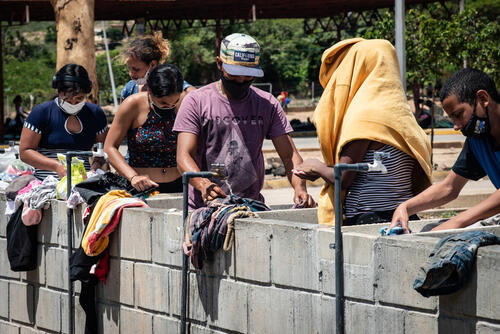
Teams from Médecins Sans Frontières (MSF), working with municipal and state authorities, are providing assistance to Venezuelan returnees in the quarantine centres, with a focus on water and sanitation, especially safe drinking water.
“One of the most frequent conditions seen by our medical teams in the quarantine centres was diarrhea, so we saw the need to improve hygiene conditions by making sure that safe drinking water was available,” says Verónica Pérez, a member of the MSF medical team in Táchira.
MSF has provided support at 16 quarantine centres across the state by installing systems for providing safe drinking water and by donating infection control materials, water disinfection tablets and meters to measure chlorine. MSF teams have also constructed showers and washing points, installed and fixed bathrooms, provided kitchen utensils for food preparation, trained staff in food handling and hygiene measures, and run health promotion days to promote good hygiene standards and prevent common diseases.
To pass the time, Oswaldo accompanies his friend Jefferson Hernández as he cuts people’s hair in the centre. A trained barber, 23-year-old Jefferson spent two months walking from Lima, the capital of Peru, back to Venezuela with his wife and one-year-old son. His two older children managed to cross the border two days earlier and are now quarantined in different centres. Jefferson is eager to leave the centre and be reunited with his family before actually returning home.
This year, many thousands of Venezuelans have crossed the border back to their home country. Until July, more than 90,000 Venezuelans returned through Colombia, according to a report by ‘Migración Colombia’, the Colombian government entity in charge of migration affairs.



